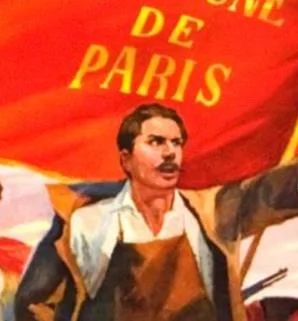The work is good and from what I can tell, the points about the discussion on the State (which is the basis for Lenin’s thesis in State and Revolution), seem solid. But a lot of the family stuff seems…I don’t know. I was never taught that stuff and I really have no anthropological background to begin researching such stuff, and I know Engels wrote it based on the very start of (respectable) anthropology.
Basically what I’m asking is, is it still accurate and just not accepted by most people because Marxism (Similar to the LTV and such), or is it outdated? And if it’s the latter, is there a more up to date source, and what does it change about Marxist thinking of pre-capitalist society?
His fundamental argument is still solid but in general it’s outdated but still worth to read.
Caliban and the Witch - Silvia Federici (Most of the Marxist references from this book and its a must to read for every Marxist)
Social reproduction theory - Tithi Bhattarya (Uptated Marxist feminism theory)
The Creation of patriarchy - Gerda Lerner (feminist history widened Engels’ feminism theory)
Some of the essays in social reproduction theory are great, but its kinda all over the place. There’s no real theme linking the book together, just like 20 random essays on whatever the different writers wanted to talk about. iirc two essays are really great, and do a solid materialist analysis.
Creation of the patriarchy isn’t bad, but its not a materialist analysis… it focuses more on ideology: the symbols and systems used by all the world’s religions which became dominant in the feudal era, to entrench feudal patriarchy. There are only a few phrases in the massive book which talk about production in any way.
Caliban in the witch is a great book.
I highly recommend Lise Vogel - Marxism and the Oppression of Women. It does a historical survey of what marxists up to the 1980s thought about the domestic labor debate, as well as being entirely materialist analysis.
Lise Vogel - Marxism and the Oppression of Women.
Don’t know if it’s as recent as you’d like (1975) but “Woman’s Evolution” by Evelyn Reed is explicitly a continuation of Engels’ work on the origin of patriarchy
Although not entirely similar, Kristen Ghodsee’s “Everyday Utopia” and David Wengrow and David Graeber’s “The Dawn of Everything” discuss the book and and similar subjects. Keep in mind that while Ghodsee I believe is a Marxist, Graeber and Wengrow are/were not.
David Graeber’s The Dawn of Everything is very anti-Marxist. Also, he’s an anarchist and a revisionist in archeology.
can you expand further on that?
Book’s main idea is “Lack of imagination isn’t an argument” the most idealistic and anarchic argument that I ever seen and he clearly rejects the materialism and organization.
i’ll be honest, i don’t know what you mean by that
Have you ever read the book? If you did can you tell me the main argument on that book
lol yes i listened to the audiobook. the main argument seems to be “contemporary western understandings of early ‘civilization’ is flawed as the types of societies that existed were varied and different”. Not sure what you’re trying to get at with your comment, I was merely asking for further explanation what you mean
That book is very idealistic not materialistic. He is literally saying that “you change the society by thinking”. He can’t be in a Marxist anthropology section. Another thing is he points so many issues at the same time but doesn’t explain them. My point is that he’s an anarchist and can’t be in a Marxist literature. Also, he’s very anti-Marxist.
LACK OF IMAGINATION IS NOT AN ARGUMENT That’s the main idea of the book which we reject because of the materialism
Ghodsee is a western supremacist liberal, not a communist.





